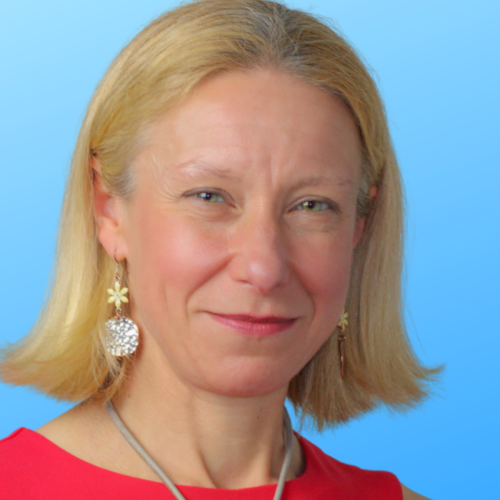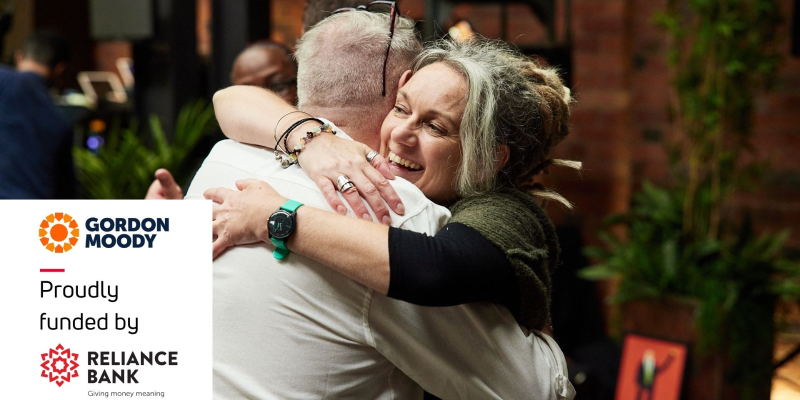Introducing the second of our 'Meet the Investor' mini-series! This week, we share some incredible investor insight from Morag Davies, Head of Commercial Banking at Reliance Bank, including why there's no such thing as a 'typical' day, the importance of a plan and her plans for more (!!) overseas marathons in 2025!
Welcome to our Meet the Investor Mini Series! As part of our commitment to demystify social investment for charities and social enterprises, we thought it'd be brilliant to bring insight and perspective from social investors across the UK, helping our users to understand more about the social investment process from the perspective of the investor.
Huge thank you to Morag for taking the time to answer these questions and for sharing her insight from the perspective of their organisation.
All about you
What is your name?
Morag Davies
What is your job title?
Head of Commercial Banking
How long have you worked at Reliance Bank?
It’ll be my fifth anniversary in December.
Where are you from / where are you based now?
I moved a lot between Scotland and England when I was growing up and started work in London before moving to Chester where I’ve stayed. I work from home and regularly travel to our office in London and meetings with advisors and clients throughout the country.

Spotlight on: Reliance Bank
What does a typical day look like at Reliance Bank?
No day is typical! Calls and meetings with my team to discuss clients and approved cases going through the diligence process. Credit Committees to review and approve new cases, meetings with our professional advisers and introducers in different cities. Looking at longer term strategy to support clients and help to develop our team.
What’s the best thing about working at Reliance Bank?
Seeing the value of what our funding can do. It’s not about a loan, it’s how valuable the money is to our clients to allow them to help people. I love seeing our case studies showing what our clients are able to do.
I am proud of our heritage and our very special shareholder - Reliance Bank has been at the forefront of social impact banking since 1890, when we were formed as the Salvation Army’s Bank. We are now wholly owned by The Salvation Army International whose mission it is to help people whose lives have been affected by emergencies, disasters, poverty and social inequality.
The success of Reliance Bank is all about facilitating the life-changing work of our customers and the ways that we can give money real meaning.
What’s most important to Reliance Bank when looking at organisations to invest in?
The social impact the money can deliver but making sure the terms are right and affordable for the organisation.
Our funding has the power to change lives for the better because we prioritise our business lending to organisations delivering positive social impact in the UK. We specifically focus on the impact themes of Charity, Community, Faith, Social Housing, Education, and Healthcare.
What does your organisation offer in terms of social investment – are there any specific products or social issues that you prioritise?
We provide Commercial lending to social impact sectors and current / savings accounts for businesses and charities. We prioritise lending that supports our aligned mission with The Salvation Army - transforming lives. We work with clients and professional partners who share the same ethos. This means supporting charities, faith organisations of all denominations; the health and social care sector; assisting provision of social housing and specialist education.
What’s been the most challenging for Reliance Bank in the last few years?
Transforming a 134 year-old traditional, smaller bank make sure we meet the increasing requirements of regulators and are able to support our clients and able to grow our offering. This has meant a lot of investment and time in finding the right people and developing our policies, procedures and systems.
What’s next for Reliance Bank – any priorities for the next 5 years that you’re able to share?
Spreading the word about Reliance being a distinctive social impact lender in sectors aligned to the mission of The Salvation Army.
We are looking to grow our lending book in our core sectors to help clients deliver services to those in need.
Exploring Social Investment...
What’s one myth about social investment you’d like to bust?
The phrase investment is misleading as there are many ways sources of money and it can be thought of purely as grants or groups putting money in. We need to create awareness that lending is available and may be the best option and can help organisations to grow.
Do you have any memorable investments you’d like to spotlight?
Gordon Moody Association case study – read here.
Do you have any top tips for organisations currently exploring social investment?
Have a plan – even if it’s a short a document covering who you are and what you do, what you want to achieve and impact it would have and some projections. Think about the people and skills you have in your team and whether you need to bring in others or use advisers.
Not everything has to cost, there’s some great free advice out there from voluntary organisations and, of course, Good Finance.
Don’t be afraid to approach investors directly. If you come to Reliance Bank, we can tell you what we would need and if we can’t assist, we can introduce you to other people who may be able to.
How would you describe the ‘Due Diligence’ process at Reliance Bank and why is it important?
We want to make the Due diligence as clear and straightforward as possible and are always looking to make it more efficient. We work with professionals who share our ethos and know the social impact sectors. It’s important to make sure the funding is affordable for you and that we have security that satisfies the Bank’s credit policy and prudent risk appetite.
There are 2 main stages of due diligence:
1. Credit review phase where we ask you for information about your organisation, how you would spend the funding, what would be the security and look at your past and projected financials.
2. Post approval diligence involves mainly legal and valuation work and it’s important that organisations appoint advisers such as solicitors and accountants who are familiar with your type of organisation and any regulation.
What’s the most difficult part of being a social investor?
Generating the awareness of who Reliance Bank are and what we can do to help organisations in need of social investment. We rely on our fantastic marketing team getting our case studies on social media and listing on the Good Finance and other directories is a great way for people to find us.
If you could change one thing about the social investment sector, what would it be and why?
The fragmented nature of it. Everyone in this sector is keen to connect and share information and it would be great if there was an opportunity for all organisations to get together.
Where would you signpost organisations if they’re looking for further support / resources ahead of applying for social investment?
Good Finance, other funds or lenders

Before you go, just for fun...
What did you want to be when you were little and why?
A TV and film director - I used to write scripts and ask friends to act them out!
What’s the last thing you searched for on Google?
Overseas marathons. I did my first one outside the UK in Boston this year for Alzheimer’s Society (and then London 6 days later just to make it harder!) I’d love to do more and already making plans for 2025.
What are you watching / reading / listening to right now – any recommendations?
Watching: Inside Number 9 last series – going back over old episode, definitely recommend
Listening: A mix depending on whether I’m running, walking or which gig I’m about to go to. Richard Hawley at the moment
Reading: The Moose Paradox – second of a comedy crime trilogy by a Finnish writer about an actuary inheriting a theme park with some criminals thrown in!
